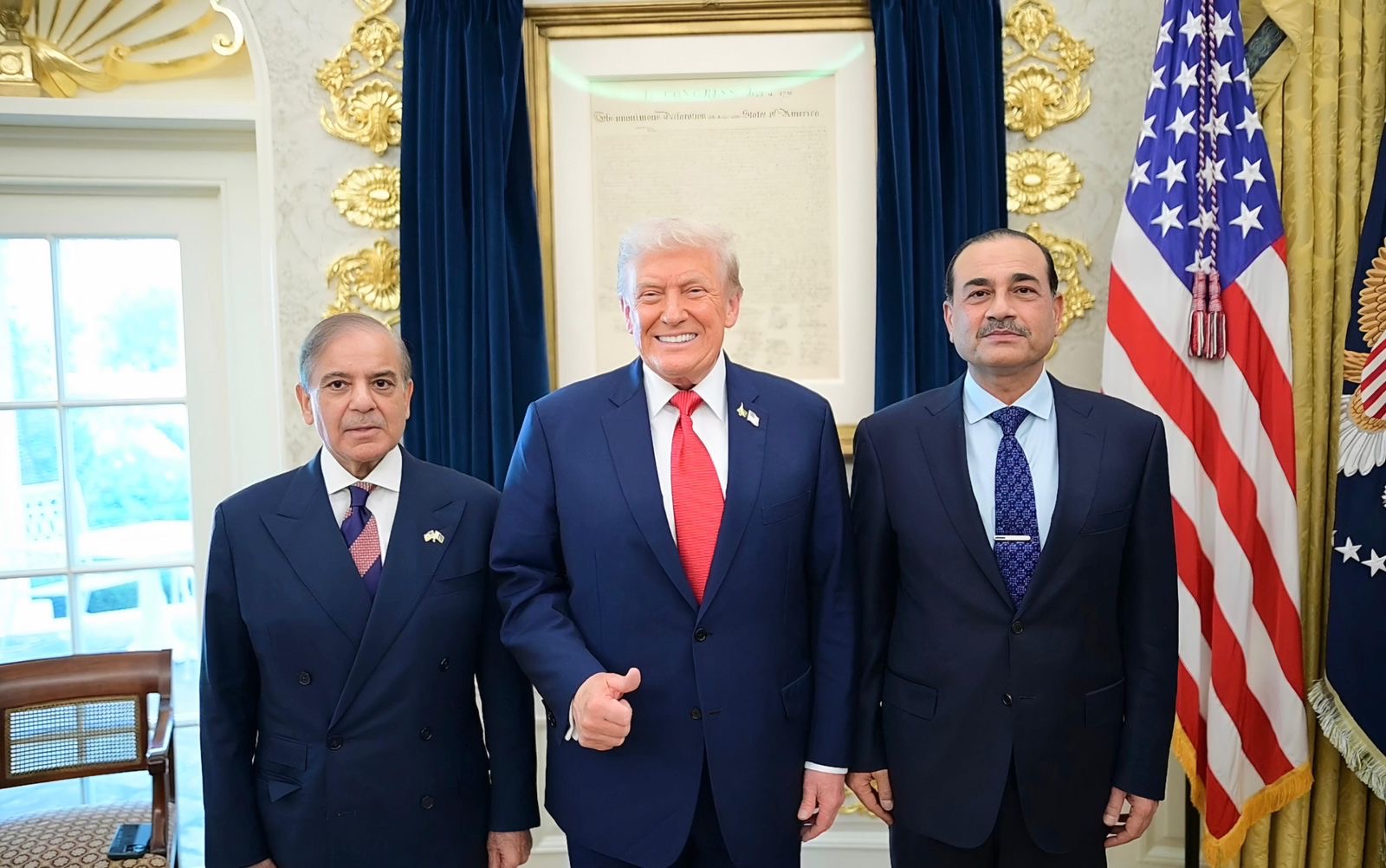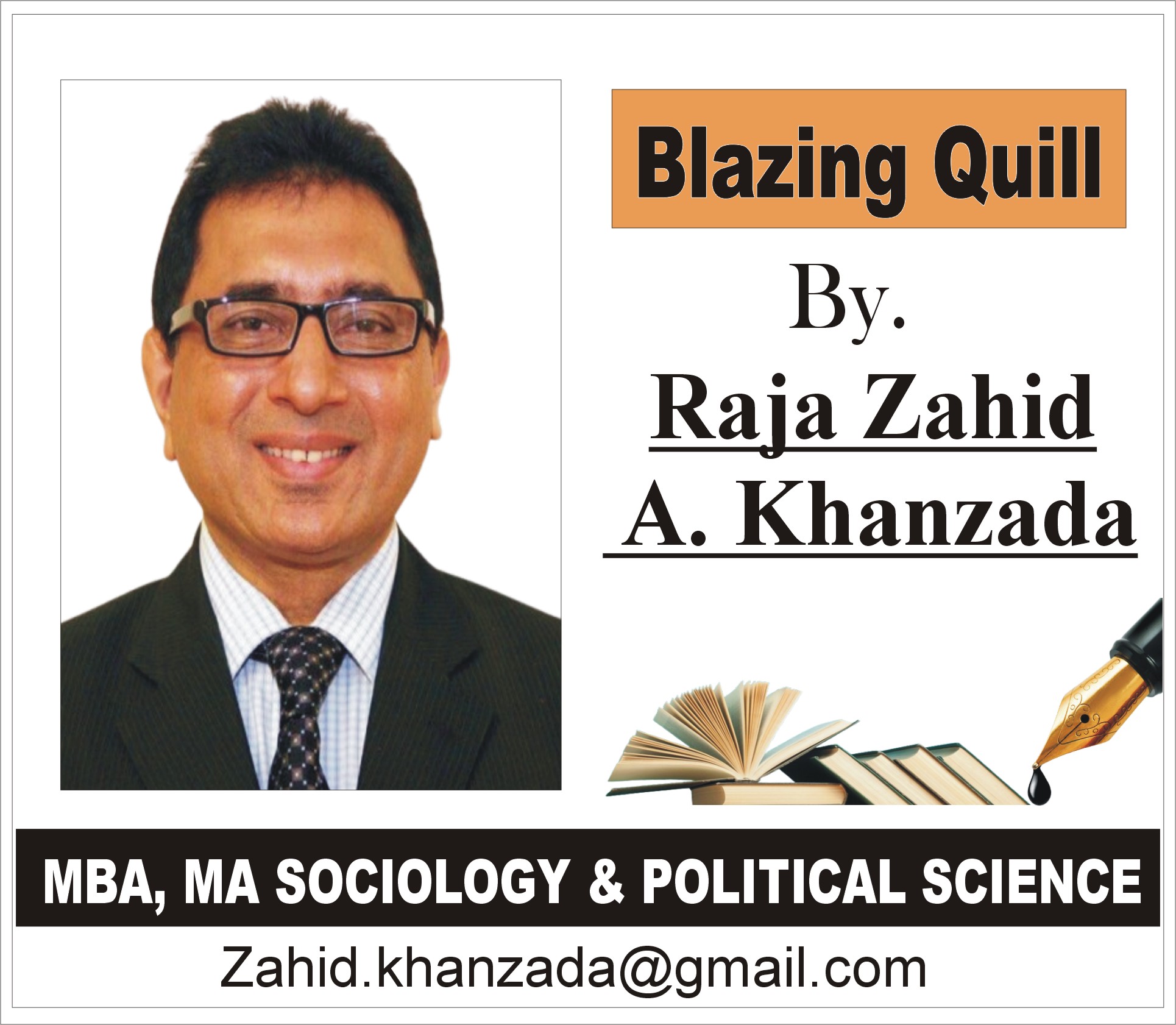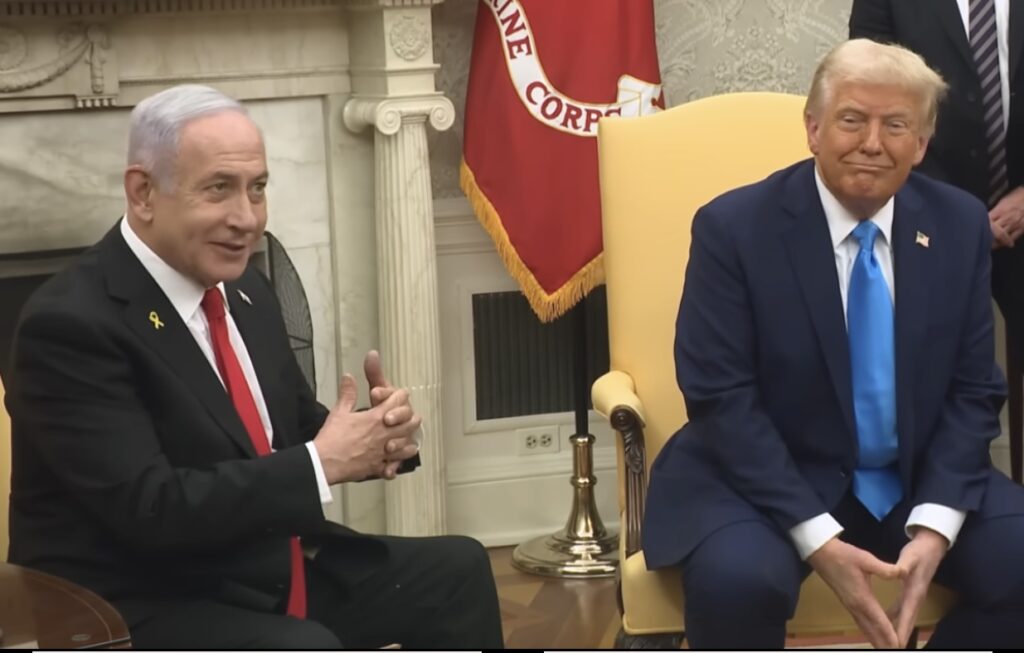Promises of Peace, Shadows of Blood — An Echo of Agreement Within the Walls of the White House
By Raja Zahid Akhtar Khanzada
More than sixty thousand innocent Palestinians sacrificed, millions of homes ravaged, and over one hundred and fifty thousand lives permanently scarred by disability this is the blood-soaked chronicle on which the world has signed in silence. Beneath the clouds of brutality that have hovered for years, there finally arrived a moment when, within the luminous walls of the White House, a press conference unfolded. Trump and Netanyahu seated face-to-face, with the gaze of the entire world fixed upon them.
I watched that moment live on the White House website. On the screen, the scene resembled an announcement of the closing chapter of a tragedy, yet in my ears resounded the voices of the American public. Beneath the livestream, a storm of comments raged. The majority were buried beneath anger and unanswered questions. Some branded Trump a tyrant, others called Netanyahu a murderer, and still others dismissed the entire process as a political spectacle. There was pain in those comments, and sarcasm too. But with calculated swiftness, Trump abruptly excused himself, citing a meeting with Democrats. Thus, the questions meant to echo across the globe were smothered before they could escape lips.
This agreement is not merely a handful of pages; it is the verdict on the fate of millions. Reports suggest days of secret negotiations between Trump and Netanyahu. Trump’s son-in-law Jared Kushner and special envoy Steve Witkoff worked tirelessly to bridge the chasm between Netanyahu and representatives of Arab nations. Most Arab states gave their endorsement. A White House adviser even remarked: “The Arabs are a hundred percent on board; it’s only Netanyahu who must now be persuaded.”
One of the pivotal clauses stipulates a phased Israeli withdrawal from Gaza, jointly proposed by the U.S. and Israel, with a seventy-two-hour timeframe for the release of captives. All prisoners , whether alive or dead — are to be returned, a symbolic healing of national wounds. During this period, all bombing and military operations will cease.
Another striking provision hands Gaza’s administration to a technocratic, apolitical Palestinian committee, overseen by a new international body called the “Board of Peace.” At its helm would be Donald Trump himself, with global figures such as former British prime minister Tony Blair also included.
Yet the story did not end there. In stark words, Netanyahu declared that if Hamas refused the deal, Israel would end the war on its own terms, the easy way or the hard way, but end it shall. The tone was familiar, an echo of the threats that had already dragged the world into this bloodletting.
Qatar’s role looms large in this equation. The Gulf state has been directly negotiating with Hamas. For the first time, Netanyahu expressed regret over the death of a Qatari soldier in an Israeli strike. Diplomats call this apology a significant turning point, yet it has also amplified pressure on Doha to deliver Hamas’s consent.
As I continued watching the broadcast, I felt the true test of this agreement was yet to come. American anger simmered higher, and harsh words for Trump flooded social media. Some dismissed the accord as politics played on Palestinian blood, while others dared to hope that peace might finally be born. Yet the truth is that Trump never allowed questions. It was choreographed so that inquiries capable of shaking the conscience of the world would remain buried.
Across the Muslim world, Arab states displayed an unusual unity. Israel’s missile strike on Qatar had forced them to rally under one voice. Saudi Arabia, the UAE, Egypt, and others now spoke in chorus. But for the Palestinian people, one haunting question remains: after rivers of blood, must their destiny still be decided by others?

For Pakistan, this moment is no less than an earthquake. Since its birth, the nation has held fast to Quaid-e-Azam Muhammad Ali Jinnah’s resolute policy: that Israel would never be recognized. This was not merely a foreign policy stance but a sacred pledge tied to Palestinian blood and sacrifice. Yet today, in Trump’s press conference, a shudder ran through me as he proclaimed that Pakistan’s Prime Minister Shehbaz Sharif and Field Marshal Asim Munir fully endorsed his peace plan.
Netanyahu went further, stating that all parties to this decision would, by implication, recognize Israel. These words were not simply rhetoric, they struck at the very foundation of Pakistan’s seventy-year policy. It suggests that in consultation with other Muslim states, Pakistan too may have crossed that Rubicon. If so, it marks a seismic turn in the nation’s history, a place where old promises and principles risk being buried under the weight of new political bargains.
Now the burden shifts to Pakistan’s people and its clerics. How will they respond to this fraught and sensitive decision? Will they accept it as a political necessity, or will they echo the age-old cry that has risen with every Palestinian funeral: that the freedom of Palestine is not a bargain but a trust?
There is already talk of an international protective force being stationed in Gaza to ensure the deal’s enforcement. Some whispers even suggest Pakistan might lead it — though such claims remain speculative. If realized, it would place Pakistan in a grave test, offering both the chance to serve the Muslim Ummah and the peril of being ensnared in the thorns of global politics.
At the close of the White House press conference, Trump declared: “Today is a great day, perhaps the greatest day in the history of civilization.” But beneath those words rang the cries of thousands of Palestinians and the tears of their mothers, still unmistakably audible.
For the world, it may be just another agreement. For the Palestinians, it is an unresolved question:
Was the blood of their martyrs truly not in vain?
Or is this yet another tale inscribed on the pages of history. where the ink of the powerful and the blood of the powerless are never the same shade?

Over the years, he has written extensively on geopolitics, diplomacy, human rights, and diaspora affairs, providing in-depth analysis of South Asian and global political developments. His work reflects a unique perspective shaped by years of reporting from the ground and covering high-level events, including United Nations sessions and White House meetings.
Raja Zahid has contributed to some of Pakistan’s most respected top media outlets, and is widely recognized for his fearless journalism and sharp commentary. His writings continue to bridge audiences across continents, making him a trusted voice on international relations and current affairs.



